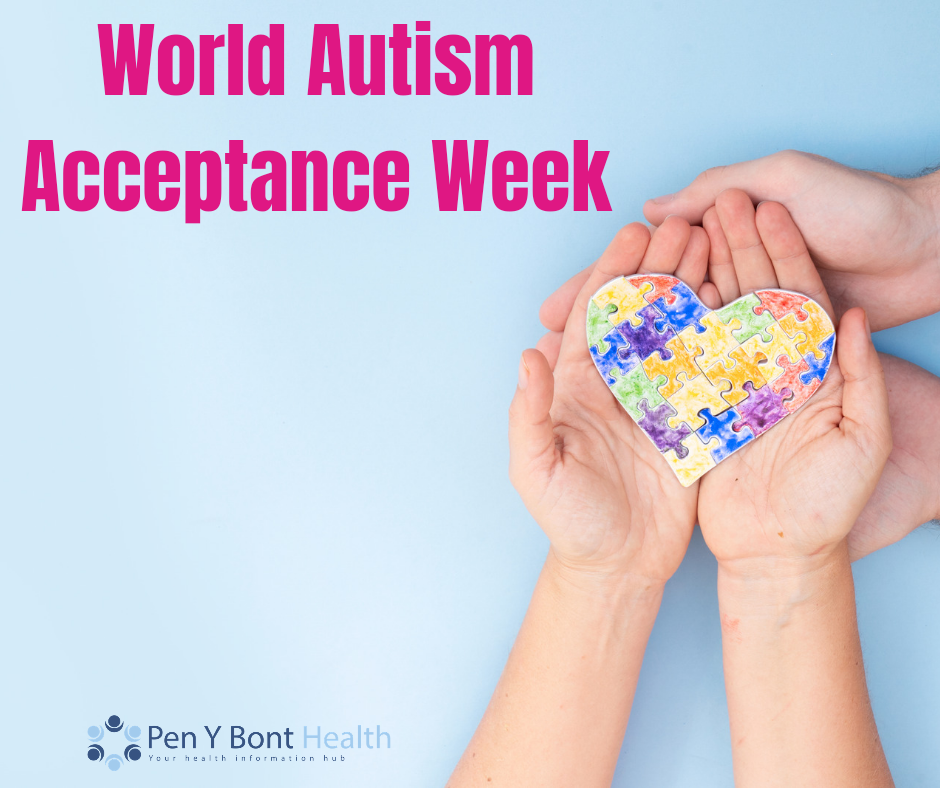The theme this year is ‘Colour’
Whether you feel creative or want to keep it simple you can make a difference this World Autism Acceptance Week. The Spectrum Colour Challenge is going to be bright and all to the theme of colour
You can sign up to fundraise on this link National Autistic Society

What is autism?
The definition of autism has changed over the decades and could change in future years as we understand more.
Autism is a spectrum condition and affects people in different ways.
Autistic people may:
- find it hard to communicate and interact with other people
- find it hard to understand how other people think or feel
- find things like bright lights or loud noises overwhelming, stressful or uncomfortable
- get anxious or upset about unfamiliar situations and social events
- take longer to understand information
- do or think the same things over and over
We know that there is not one autism but many subtypes, most influenced by a combination of genetic and environmental factors. Because autism is a spectrum disorder, each person with autism has a distinct set of strengths and challenges.
Being autistic does not mean you have an illness or disease. It means your brain works in a different way from other people.
It’s something you’re born with. Signs of autism might be noticed when you’re very young, or not until you’re older.
How do get diagnosed
If you think you, your child or a family member may show signs of autism you could speak to:
- a GP
- a health visitor (for children under 5)
- any other health professional your child sees, such as another doctor or therapist
- special educational needs (SENCO) staff at your child’s school
Ask them about referring you or your child for an autism assessment.
An assessment is done by autism specialists. It’s the only way to find out if you or your child are autistic.
Things to remember:
- write a list of the signs of autism you think you or your child have and bring it with you
- ask people who know you or your child well (like friends, family or teachers) if they have noticed any possible signs you could put on your list
- bring a pen and paper so you can take notes
- bring your child or someone who knows you well with you, if you think it might help (you do not have to)
For more details on getting diagnosed with autism click the link NHS – Autism.
This link will also provide you with more information on what will happen if during an autism assessment Autism Assessment.
When should I see a GP?
Endometriosis can have a significant impact on a person’s life in a number of ways, including:
- Chronic pain
- Fatigue/lack of energy
- Depression/isolation
- Problems with a couple’s sex life/relationships
- An inability to conceive
- Difficulty in fulfilling work and social commitments
However, with the right endometriosis treatment, most of these issues can be tackled, and the symptoms made more manageable.
It can be difficult to diagnose endometriosis because the symptoms can vary considerably, and many other conditions can cause similar symptoms.
A GP will ask about your symptoms and may ask to examine your tummy and vagina. They may recommend treatments if they think you have endometriosis.
If these do not help, they might refer you to a specialist called a gynaecologist for some further tests, such as an ultrasound scan, MRI or laparoscopy.
Living with autism
Some autistic people are able to live relatively independent lives but others may face additional challenges. Some autistic people have learning disabilities, which means their support needs are different.
Although there is no actual cure on the horizon, there is support out there for families and individuals.
For more information on autism and the support available in Wales, click here Autism Wales
